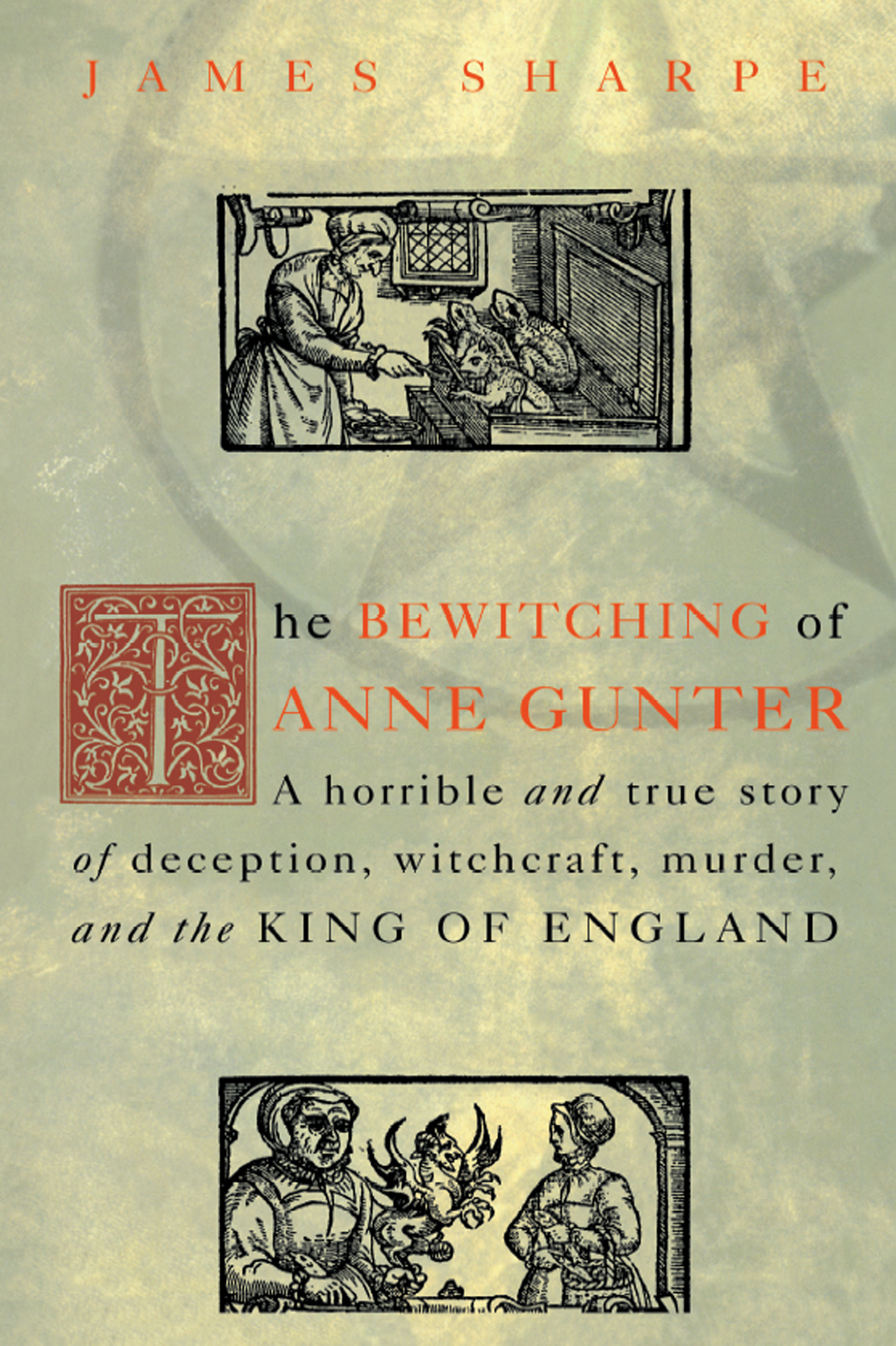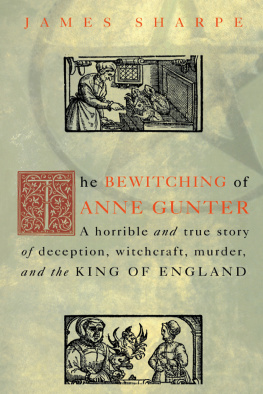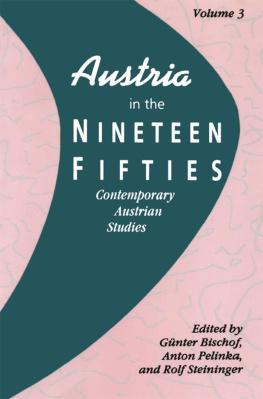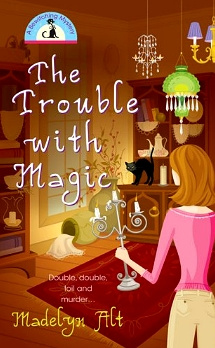Sharpe James - The Bewitching of Anne Gunter
Here you can read online Sharpe James - The Bewitching of Anne Gunter full text of the book (entire story) in english for free. Download pdf and epub, get meaning, cover and reviews about this ebook. publisher: Taylor & Francis Group, genre: Science. Description of the work, (preface) as well as reviews are available. Best literature library LitArk.com created for fans of good reading and offers a wide selection of genres:
Romance novel
Science fiction
Adventure
Detective
Science
History
Home and family
Prose
Art
Politics
Computer
Non-fiction
Religion
Business
Children
Humor
Choose a favorite category and find really read worthwhile books. Enjoy immersion in the world of imagination, feel the emotions of the characters or learn something new for yourself, make an fascinating discovery.
- Book:The Bewitching of Anne Gunter
- Author:
- Publisher:Taylor & Francis Group
- Genre:
- Rating:5 / 5
- Favourites:Add to favourites
- Your mark:
- 100
- 1
- 2
- 3
- 4
- 5
The Bewitching of Anne Gunter: summary, description and annotation
We offer to read an annotation, description, summary or preface (depends on what the author of the book "The Bewitching of Anne Gunter" wrote himself). If you haven't found the necessary information about the book — write in the comments, we will try to find it.
The Bewitching of Anne Gunter — read online for free the complete book (whole text) full work
Below is the text of the book, divided by pages. System saving the place of the last page read, allows you to conveniently read the book "The Bewitching of Anne Gunter" online for free, without having to search again every time where you left off. Put a bookmark, and you can go to the page where you finished reading at any time.
Font size:
Interval:
Bookmark:



A horrible and true story of deception,
witchcraft, murder, and the
King of England
JAMES SHARPE
ROUTLEDGE
NEW YORK
Published in 2000 by
Routledge
270 Madison Ave,
New York NY 10016
Transferred to Digital Printing 2009
First published in Great Britain in hardcover in 1999 by Profile Books Ltd.,
and reprinted by arrangement with Profile Books Ltd.
First Routledge hardback edition, 2000
Copyright 1999,2000 by James Sharpe.
All rights reserved. No part of this book may be printed or reproduced or utilized in any form or by any electronic, mechanical, or other means, now known or hereafter invented, including photocopying and recording, or in any information storage or retrieval system, without permission in writing from the publisher.
Library of Congress Cataloging-in-Publication Data
Sharpe, J. A.
The bewitching of Anne Gunter : a horrible and true story of deception, witch-craft, murder, and the King of England / James Sharpe.
p. cm.
Includes bibliographical references (p.) and index.
ISBN 0-415-92691-2 ISBN 0-415-92692-0 (pb)
1. WitchcraftEnglandHistory. 2. Trials (Witchcraft)EnglandHistory. 3.
Gunter, Anne, 16th/17th cent. 4. James I, King of England, 15661625. 5.
Great BritainHistoryJames 1,16031625. 1. Title.
BF1581.S517 2000
133.43094209032dc21 99-056590 CIP
Publisher's Note
The publisher has gone to great lengths to ensure the
quality of this reprint but points out that some
imperfections in the original may be apparent.
For Guy
In the hope that he is getting a better deal from his father than Anne had from hers
He this deponent saith that he ... did not at any time give or cause to be given unto his said daughter Anne either during her fits or before or after any sack or sallet oil... but this deponent's wife or some of her servants... did in two or three mornings in the time of the sickness of this deponent's said daughter when she was out of her fits give unto her some sack and sallet oil mixed with spices and sugar candy to comfort her stomach. And this he saith was done by the direction of a cunning woman dwelling at Pangbourne as this deponent was also informed.
Deposition of Brian Gunter to the Star Chamber, 11 February 1606
She saith that in the time of her sickness & troubles she had sack & sallet oil with some other mixtures in the same given unto her by her said father & by Nicholas Kirfoote & his sister, & that when she took this drink she was presently provoked to vomit & to tumble & toss up and down & that the same drink so troubled her senses that she knew not what she said, besides that it made her very sick. And of this she saith her father made her to drink when & so often as he thought good.
Deposition of Anne Gunter to the Star Chamber, 24 February 1606


E VEN PARED to its essentials, the story is a fascinating one. In the summer of 1604 a young woman called Anne Gunter, then aged about twenty, fell ill. She recovered quickly, but her symptoms, or something very like them, returned in late October of that year, and this time they persisted. Anne lived with her parents, a gentleman named Brian Gunter and his wife, also called Anne, in the small country parish of North Moreton, some twelve miles south of Oxford. The parents, concerned by her illness, called in doctors, but they were unable to find a satisfactory explanation for her affliction, and suggested there might be supernatural causes. Anne was by this stage showing the symptoms that the age considered indicative of demonic possession or of witchcraft: she had fits during which she writhed and contorted; she fell into trances or comas; she vomited and voided foreign bodies, especially pins. And, as was so often the case, she called out against her supposed tormenters as she suffered her fits before an ever expanding audience of fascinated spectators. She named three women as witches: Agnes Pepwell, who already had a reputation as a witch, her illegitimate daughter, Mary, and Elizabeth Gregory, her principal tormentor, who was the wife of a yeoman farmer called Walter Gregory and, on many accounts, the most unpopular woman in North Moreton.
Agnes Pepwell ran away, but Mary Pepwell and Elizabeth Gregory were tried for witchcraft at Abingdon in March 1605. They were acquitted. Matters might well have ended there, but Brian Gunter decided to re-open the case, or at least to gain sympathy at the highest level, by arranging a meeting between his daughter and the King, James I, when the monarch visited Oxford University in August 1605. James had a reputation as a witch-hunter, and Brian Gunter was building his hopes on this when he brought Anne before him. The plan misfired badly. James was in a sceptical mood, while the ecclesiastical politics of the Church of England meant that in 1605 there was a body of extremely influential Churchmen, including the archbishop of Canterbury, Richard Bancroft, who were far from credulous about instances of witchcraft, demonic possession and exorcism. The King passed Anne to the care of Archbishop Bancroft, who in turn put her in the custody of his chaplain, Samuel Harsnett, who had already been a propagandist for the sceptics in earlier cases of supposed demonic possession. By October Anne had confessed to James that she had simulated bewitchment at her father's instigation, to further a feud between him and the family of the chief of the accused witches, Elizabeth Gregory. The feud had begun in 1598, when Brian Gunter had inflicted fatal injuries on two of the Gregorys at a football match.
Probably under Bancroft's guidance, proceedings were initiated at the Court of Star Chamber early in 1606 against Brian Gunter and his daughter Anne for falsely accusing the three women. The dossier resulting from these proceedings, which makes this quite simply the best-documented English witchcraft case, contains the evidence of over sixty witnesses and comprises several hundred pages. Many of the witnesses described how Brian Gunter gave his daughter a mixture of sack, or sherry, and sallet, or salad oil. The father claimed it was for his daughter's good; Anne claimed it was to make her fits all the more believable. It is Anne's version of what happened, here as elsewhere, that ultimately convinces.

I FIRST CAME across Anne Gunter while I had a term's sabbatical leave in Oxford in the autumn of 1992, an experience made possible by the generosity of All Souls College in awarding me a visiting fellowship. My initial debt incurred while writing this book is, therefore, to the Master and Fellows of All Souls. My second (and all historians of English witchcraft are indebted to this obscure scholar) is to that pioneer of English witchcraft studies, Cecil L'Estrange Ewen. Early in my term at Oxford I ordered up Ewen's Witchcraft in the Star Chamber
Font size:
Interval:
Bookmark:
Similar books «The Bewitching of Anne Gunter»
Look at similar books to The Bewitching of Anne Gunter. We have selected literature similar in name and meaning in the hope of providing readers with more options to find new, interesting, not yet read works.
Discussion, reviews of the book The Bewitching of Anne Gunter and just readers' own opinions. Leave your comments, write what you think about the work, its meaning or the main characters. Specify what exactly you liked and what you didn't like, and why you think so.












